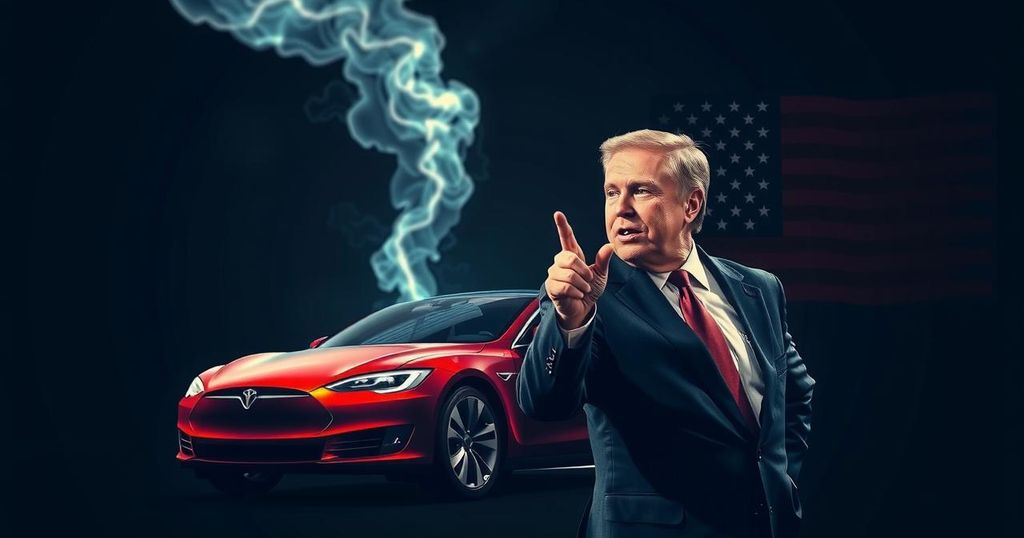Elon Musk’s Controversial Role in Supporting Donald Trump’s Election Campaign
Elon Musk is utilizing controversial financial strategies to support Donald Trump’s presidential campaign, including cash incentives for petition signers and targeted messaging aimed at specific voter demographics. This raises ethical questions about the potential manipulation of voter sentiments and the influence of money in politics, especially in light of broad corporate financial contributions following the Citizens United ruling.
Elon Musk appears to be employing questionable tactics to promote Donald Trump’s return to the presidency. His strategy involves a contest named “The Maga Millions,” where participants can win up to one million dollars by signing a petition favoring free speech and gun rights. As election day approaches, Musk’s pro-Trump Political Action Committee, America Pac, has committed to awarding $1 million daily to a randomly selected individual who signs this petition. Previously, he had offered monetary incentives to registered voters in crucial swing states, including $100 for votes in Pennsylvania, leading to accusations of illegal vote-buying from experts such as political scientist Rick Hasen. In addition to these cash incentives, Musk is reportedly financing a campaign by Future Coalition Pac, which employs strategic and conflicting messages aimed at diverse voter demographics in pivotal states. For instance, in regions with substantial Arab and Muslim populations, they promote a narrative highlighting Kamala Harris’s support for Israel, while addressing Jewish communities in Pennsylvania with claims of her pandering toward Palestinians. This dual messaging raises ethical concerns regarding the manipulation of voter sentiment through financial coercion. The influence of money in American politics has surged following the 2010 Citizens United ruling, allowing vast sums from corporates and special interests into the electoral process. While Musk’s financial contributions have reached approximately $75 million, it pales in comparison to figures from others like Miriam Adelson, who has donated around $100 million, reflecting a strategy that effectively ties financial backing to political influence. Speculations suggest that Musk’s motivations for supporting Trump may include a desire for increased government contracts for his companies and a significant influence on governmental operations, possibly positioning himself for a role concerning budgetary regulations. The whimsical potentialities of Musk’s ambitions also include bizarre public projects, potentially jeopardizing vital services in favor of his eccentric pursuits.
The article discusses the intersection of wealth and political influence in American elections, particularly focusing on Elon Musk’s recent attempts to support Donald Trump’s presidency candidacy through questionable financial incentives. It highlights how corporations and wealthy individuals have leveraged their financial power to sway electoral outcomes, especially following the Citizens United ruling, which facilitated significant monetary contributions to political campaigns. Musk’s dual strategy of cash incentives and targeted advertisements illustrates the evolving tactics employed within this landscape and raises ethical questions surrounding voter manipulation and electoral integrity.
In summary, Elon Musk’s financial strategies to influence the upcoming election for Donald Trump underscore the increasing concern over the role of large donors in shaping political outcomes. The use of direct cash incentives to attract voter support, coupled with sophisticated advertising aimed at manipulating various voter demographics, points to the potential for unethical practices in the electoral process. As financial power continues to dominate American politics, the implications for democratic integrity remain troubling, necessitating a reevaluation of campaign finance regulations.
Original Source: www.theguardian.com




Post Comment